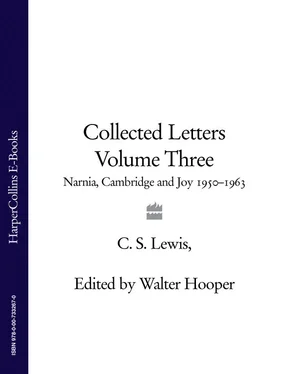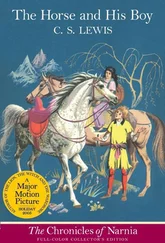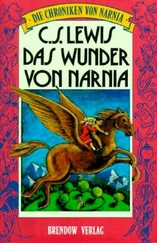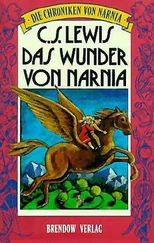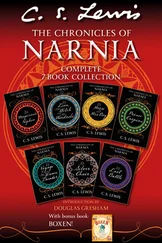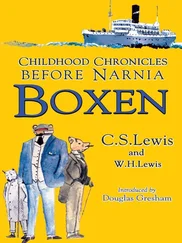182 Prince Caspian , ch. 8: ‘When they came out into the daylight Edmund turned to the Dwarf very politely and said, “I’ve got something to ask you. Kids like us don’t often have the chance of meeting a great warrior like you. Would you have a little fencing match with me? It would be frightfully decent.” ‘
183 The Silver Chair .
184Sir Walter Scott, Ivanhoe (1819).
185See the letter to Bodle of 31 December 1947 (CL II, p. 823).
186The name given to the planet Earth in Lewis’s interplanetary trilogy.
187Roger Lancelyn Green, Tellers of Tales: An Account of Children’s Favourite Authors from 1839 to the Present Day (1946; new edn, 1953).
188For Don Giovanni Calabria’s letter of 3 September 1953 see Letters: C. S. Lewis-Don Giovanni Calabria , pp. 84-7.
189Giovanni Calabria, Instaurare Omnia in Christo (Verona: Vescovile Casa Buoni Fanciulli, 1952).
190Horace, Ars Poetica , 169-74: ‘Multa senem circumveniunt incommoda, vel quod quaerit et inventis miser abstinet ac timet uti,/vel quod res omnis timide gelideque ministrat,/dilator, spe longus, iners, avidusque futuri,/difficilis, querulus, laudator temporis acti/se puero, castigator censorque minorum’: ‘Many troubles assail an old man, whether because he seeks gain, and then wretchedly abstains from what he possesses and is afraid to use it, or because he attends to all his affairs feebly and timidly; a procrastinator, he is apathetic in his hopes and expectations, sluggish and fearful of the future, obstinate, always complaining; he devotes himself to praising times past, when he was a boy, and to being the castigator and moral censor of the young.’
1912 Corinthians 1:3.
192This had been Lewis’s chief intention in The Abolition of Man .
193Herbert Read, The Green Child (1935).
194The French composer, Olivier Messiaen (1908-92).
195Probably Douglas Edison Harding, author of The Hierarchy of Heaven and Earth .
196In The Hone and His Boy .
197ibid., ch. 7.
198Lewis was referring to Rachel, son of Laban. According to Genesis 29:20: ‘Jacob served seven years for Rachel.’ In her note to his letter Pitter said: ‘I had now known Lewis for seven years, and thought perhaps he would not mind if we now used Xtian names…I had asked “if I might now have Rachel”, alluding to Jacob’s seven-year service’ (Bodleian Library, MS. Eng. lett. c. 220/3, fol. 119).
199The foolish clergyman in Jane Austen’s Pride and Prejudice (1813), who is excessively obsequious to persons of high rank.
200G. A. L. Burgeon (Owen Barfield), This Ever Diverse Pair , introduction by Walter de la Mare (London: Gollancz, 1950). See the description of this book in CL II, p. 937n.
201Charlotte M. Yonge, The Daisy Chain (1856); The Trial (1864); The Pillars of the House (1873); The Three Brides (1876); The Two Sides of the Shield (1885); Dynevor Terrace (1857); Nutty’s Father (1886) .
202John Richards (1918-95) was born in London on 23 June 1918. He went to Brockley County School in Forest Hill, after which he read English at King’s College, London. Before he could complete his degree the Second World War intervened and he spent most of the war years working in an anti-aircraft battery in Northern Ireland. After VE Day Richards was transferred to the Foreign Office. He soon left, returning to King’s College to complete his degree. In 1949 he realized his long-time ambition and began work in the Ministry of Education, where he served as Under-Secretary, 1973-7. A convert to Roman Catholicism in 1940, he afterwards contributed to many Catholic periodicals. See Lewis’s letter to Richards of 5 March 1945 in the Supplement.
203Charlotte M. Yonge, The Heir of Redclyffe (1853).
204i.e., The Splendid Century .
205John Forrest, who had just died, was the husband of Lewis’s cousin, Gundreda Ewart Forrest. See The Ewart Familyin the Biographical Appendix to CL I.
206The words ‘better the frying pan than the fire’ were removed from The Silver Chair before the book was published.
207Lewis had probably been asked to examine J. B. Phillips’s translation of Acts, The Young Church in Action: The Acts of the Apostles , published by Geoffrey Bles in 1955. The reference is to Phillips’s translation of Acts 2:22-4.
208The fourteenth-century manor Dartington Hall was bought in 1925 by Leonard and Dorothy Elmhirst, who opened it in 1926 as an experiment in co-education. From the first one of its purposes was to renovate the large Dartington Hall estate. The school featured a ‘pupil-defined curriculum’ based upon the individual. There were few rules for older students, no uniforms, no religious education, and no church services. Emphasis was placed on ‘co-operation rather than competition’. Lewis’s pupil, Mary Neylan, taught there for a number of years. See Mary Neylanin the Biographical Appendix to CL II, pp. 1054-5.
209The school in The Silver Chair .
210Edgar Allan Poe, The Narrative of Arthur Gordon Pym of Nantucket (1850).
211‘for the prayers’.
212Congregation of Sisters of the Holy Redeemer, a lay order within the Order of the Holy Cross.
213 Book of Common Prayer , Collect for Whitsunday.
214The story is told of a friend saying to Sir Winston Churchill, ‘How wonderfully your new grandson looks like you.’ ‘All babies look like me,’ replied Sir Winston. ‘But then, I look like all babies.’
215William Wordsworth, ‘Ode, Intimations of Immortality from Recollections of Early Childhood’ (1807), 63-6: ‘Not in entire forgetfulness,/And not in utter nakedness,/ But trailing clouds of glory do we come/From God, who is our home.’
216i.e., Florence ‘Michal’ Williams, the widow of Charles Williams.
217Lewis forgot he had asked Bles, in his letter of 20 October, to remove the words from The Sliver Chair .
218Romans 8:26-7: ‘We know not what we should pray for as we ought: but the Spirit itself maketh intercession for us with groanings which cannot be uttered. And he that searcheth the hearts knoweth what is the mind of the Spirit, because he maketh intercession for the saints according to the will of God.’
219Luke 18:2: ‘And he spake a parable unto them to this end, that men ought always to pray, and not to faint.’
220Luke 22:42.
221Mark 11:24: ‘Therefore I say unto you, What things soever ye desire, when ye pray, believe that ye receive them and ye shall have them.’
222Charles Williams, Evelyn Underhill, George MacDonald.
223John 3:16.
2241 John 2:15.
225Revelation 18:4.
226Mrs Gebbert had asked if Lewis would autograph a copy of The Stiver Chair for her son, Charles Marion Gebbert.
227The Bermuda Summit, 4-8 December 1953, was held at the initiative of Sir Winston Churchill and included Britain, the United States, France and the USSR. In the aftermath of loseph Stalin’s death and the Soviet development of a hydrogen bomb, Churchill hoped to gain President Eisenhower’s support for a top-level dialogue with the new Soviet leadership. He was motivated primarily by a wish to break the stalemate of the Cold War and avert a possible nuclear conflict.
228Panama was Queen Elizabeth II’s and Prince Philip’s first port of call (29 November 1953) on their visit to Australia, which was part of the Queen’s first Commonwealth tour.
229The letter is unsigned.
230Sir Stanley Unwin (1884-1968), publisher, was the son of Edward Unwin, a London printer. In 1904 he joined his lather’s stepbrother, T. Fisher Unwin, in his publishing firm. At 28 he began his own firm and soon afterwards bought George Allen & Sons. With the new company, George Allen & Unwin, he quickly built a formidable list of authors. In 1926 Unwin published The Truth about Publishing , which became the authoritative textbook on the subject. He was a tireless worker, but spared time for his other passion–tennis, which he played every weekend throughout the year. In 1937, acting on the recommendation of his ten-year-old son, Rayner, he published Tolkien’s The Hobbit . Again at the recommendation of Rayner, he published The Lord of the Rings . Because that book was so difficult to describe, Unwin asked Lewis if he would write something to serve as a ‘blurb’ for its cover. Lewis included such a piece with this letter. Unwin was knighted in 1946.
Читать дальше
